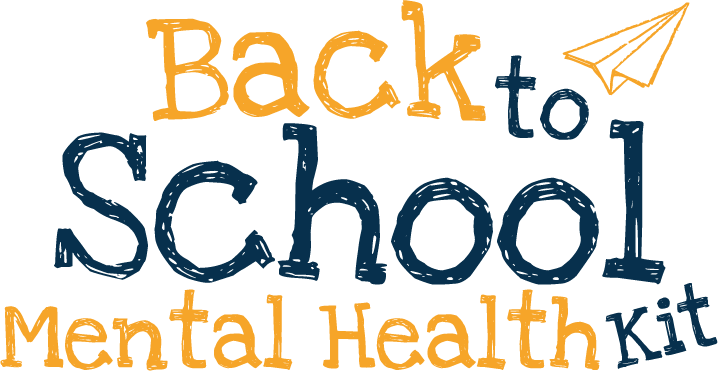Acknowledge the Challenge
Acknowledge the Challenge
Acknowledge the Extent of the Challenge
Acknowledging the extent of the challenge will help you ensure that your expectations of your child are realistic.
School will look different this year. While the situation will vary from community to community and even from school to school, students can expect to return to classrooms with very different rules in place. They’ll be required to adhere to guidelines for physical distancing, mask wearing, and personal hygiene; to limit their movements within the school; and to spend more time seated at their desks. And that’s just for starters.
They can also expect to contend with an ongoing series of road bumps and policy pivots as we head into this one-of-a-kind school year. The situation is strange and uncertain. We’re going to have to improvise and change course as we go. It doesn’t mean that we’re doing things wrong: it means that we’re working hard at applying all our hard-earned knowledge about what it means to go to school in a world with COVID-19.
For those returning to school virtually (or in a blended learning format) there will be different challenges to manage than their in-person peers. There will need to be an effort to develop community with students who may never meet each other and to foster an engaged learning environment in an unfamiliar way. On top of it, not every student will have the same comfort with technology, ease to engage in the virtual classroom community or daytime access to a parent as a support. (Read more on Your Child’s Mental Wellness and Remote Learning)
It’s important to acknowledge the extent of the challenge: to recognize the many ways that things will be different this year for all of us: students, teachers, families, and communities.
Being realistic about what’s possible will allow us to adjust our expectations accordingly, as opposed to setting our selves and our kids up for frustration and disappointment.
And that starts with acknowledging the fact that everyone will be carrying an extra-heavy load this year—and recognizing that it will be more important than ever to be patient with and kind to one another.
TIP:
Be hopeful and optimistic, but also realistic about what may be possible for your child right now. Your child is dealing with a very challenging set of circumstances—a situation that may be triggering a lot of added anxiety—and children can’t be expected to settle into learning at school until they are feeling safe and secure. So the best way to support your child’s academic learning is to make their mental health a priority, even if that means putting school or academics on the backburner for now. What matters most in this moment is the health and wellbeing of your child.
Read more about Navigating School to Support Your Child With Mental Health Challenges.
Help your child to feel good about returning to school
It’s important to recognize the important role that you, as the adult, have to play in setting the emotional tone for your child and your family. You have the opportunity to help your child to hold on to hope during a really challenging time, and to feel good about returning to school.
A key first step is to acknowledge and work through your own feelings of anxiety about your child’s return to school. Maybe you’re worried about the physical safety of your kindergartener or the mental wellbeing of your teenager. If you can pinpoint the source of your underlying worry, you may be able to find a way to deal with the issue or to seek some additional support for yourself. Your goal is to get to a place where you can feel calm, confident, and positive when you talk to your child about heading back to school. That doesn’t mean that you’re trying to erase the worry: you’re simply trying to make it a little more manageable.
TIP:
Know that you’re not alone in “feeling all the feelings” this back-to-school season. A lot of parents are feeling extra worried this year. One way to manage that worry is by reaching out to other people for support—perhaps chatting with a friend via a Zoom call or joining your local Parents for Children’s Mental Health chapter or the Children’s Mental Health Ontario Facebook Group.
Look for opportunities to normalize the back-to-school experience as much as possible. Yes, it’s going to be an extra challenging back-to-school season, but that doesn’t have to rob the experience of all of its joy. Look for opportunities to help your child to recognize that there are still things to look forward to—perhaps reconnecting with friends or a favourite teacher.
Help your child to ease back into school-year routines. Routines are important. They help us to feel grounded and secure—which means they’re needed more than ever, right now. Transitioning back to a school-year routine won’t be easy after six months of relatively unscheduled pandemic living, so you might want to tackle it in stages, gradually shifting bedtimes and wakeup times, dialing back the amount of screen time, and ensuring that mealtimes are happening at predictable times. It might also be a good idea to talk about the challenges of being apart from other family members, after six months of “bubbling” together. If this is the case for your child, you might want to help your child to identify ways of feeling supported and connected by you, even when the two of you are physically apart.
It’s important to recognize the important role that you, as the adult, have to play in setting the emotional tone for your child and your family. You have the opportunity to help your child to hold on to hope during a really challenging time, and to feel good about returning to school.
TIP:
It’s important to acknowledge the fact that not every kid is going to be excited about heading back to school. Some might even experience a heightened level of school refusal and/or separation anxiety.
Express confidence in your child’s ability to handle what is admittedly a very challenging situation. Remind your child that they’ve been through hard things before and they managed to make it through—and that they don’t have to handle this on their own. There are people who care about them, both at home and at school. We can weather the challenges together.

Back To School Mental Health Kit
While back-to-school is hard for most children and youth in a normal year, this year our kids and their families are facing extraordinary circumstances relating to the pandemic and infection control measures. To help, Children’s Mental Health Ontario has prepared a Back-to-School Tool Mental Health Kit with resources and tips.
Look for tips, resources and information to help parents and caregivers.
Survival Guide
Practical tips and information to prioritize your own wellness and start making things better for you and your family.
Back-to-School Tips for Parents
Strategies for making a strange and uncertain situation feel a little less overwhelming for you and your kids.
Parenting in a Pandemic
Parenting in the midst of a pandemic is challenging, especially for parents of kids struggling with mental illness.
You Don’t Have to Do This Alone.
If you are a parent/caregiver worried about your child, or a young person looking for help yourself – please reach out. Our network of child and youth mental health centres has 4,000 professionals ready to help children, youth and families with free counselling and treatment. We provide care in person, on the phone and virtually. No problem is too big or small.
Find your closest child and youth mental health centre.
